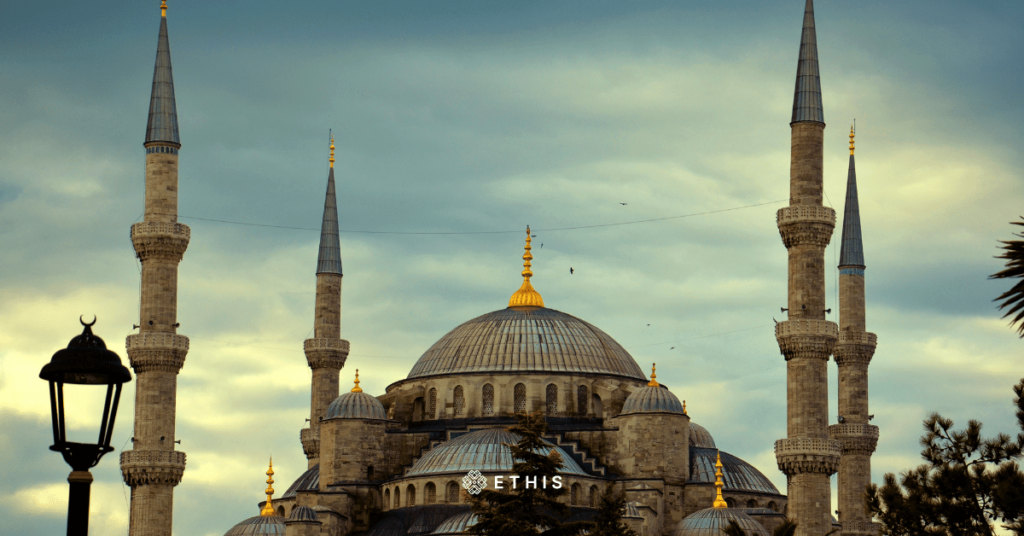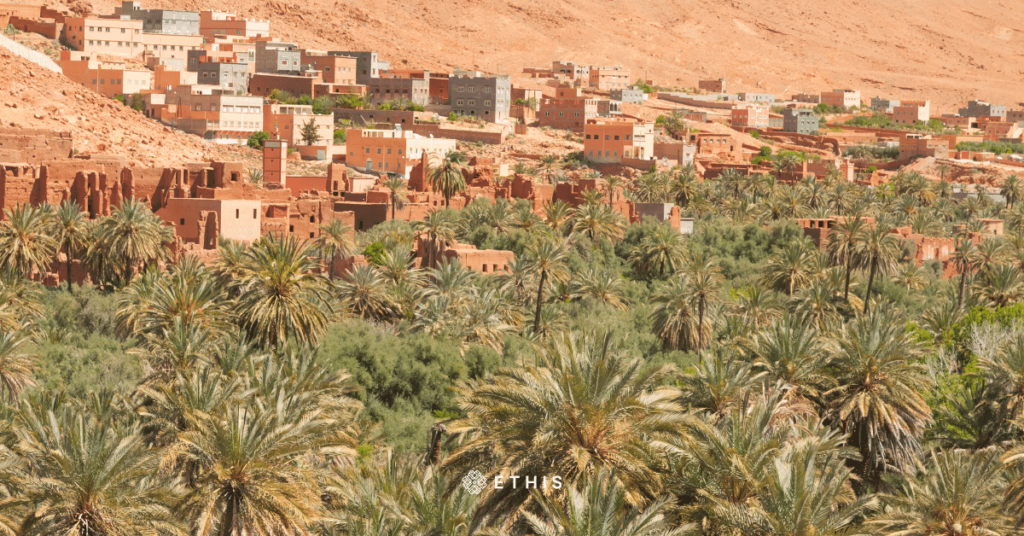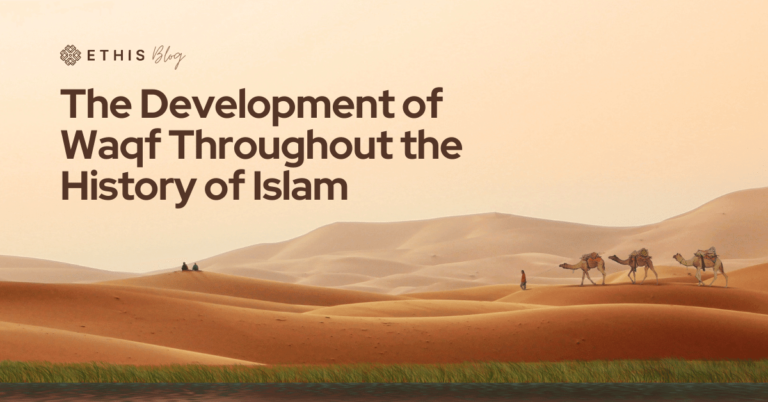
Since establishing a waqf (Islamic charitable endowment) is regarded as an act of virtue spending in the path of Allah for a lasting reward it has played a powerful role throughout Islamic history. Waqf is more than just charity; it is a form of sadaqah jariyah (continuous charity) that benefits generations.
Wherever Muslims have lived, waqf has followed. From West Africa to the Indian subcontinent, the Middle East to Southeast Asia, and even in minority communities in Europe and the Americas, waqf has served as a cornerstone of community life.
Related: Waqf & Islamic Finance: A candid talk with Dr Shamsiah


Waqf in Early Islamic History
Waqf experienced a meteoric expansion in the years following the Prophet ﷺ. It quickly became central to community development, supporting religious, social, cultural, scientific, and even political life. Remarkably, waqf endowments were not only for Muslims many served non-Muslim communities in Islamic societies, highlighting Islam’s emphasis on justice and compassion.
There was a waqf established for virtually every endeavor that could be construed as being of social benefit. There were waqfs established for places such as mosques, academic institutions, schools, medical facilities, orphanages, houses for the poor, food for the poor, the blind, battered and abused women, soup kitchens, wells, water pipes, fountains, public baths, bridges, graveyards, salaries, pensions, guest houses, libraries, and animal welfare.
The Ottoman Empire, in particular, built much of its social infrastructure around waqf. A famous saying captures its role:
“Thanks to the waqfs that flourished during the Ottoman Empire, a person would have been born into a waqf house, slept in a waqf cradle, studied in a waqf school, received treatment in a waqf hospital, and when he died, buried in a waqf cemetery.”
This shows the all-encompassing nature of waqf in Muslim societies.
Related: Waqf for Poverty Alleviation
Waqf as a Tool of Governance and Welfare
According to Dr. Sabahuddin Azmi in Islamic Economics, waqf worked hand-in-hand with state institutions. While governments provided public services, waqf reinforced them through voluntary donations. Importantly, the rise of state ministries in later centuries did not weaken waqf it continued to thrive as a deeply rooted tradition.Today, nearly every Muslim-majority nation has a Ministry of Awqaf or similar body managing endowments. In many countries, waqf properties still contribute significantly to national income and community welfare.


The Institution of Waqf During the Prophet’s ﷺ Time
The charitable practice of waqf began with the Prophet Muhammad ﷺ and his companions:



- The Seven Orchards of Madinah – The charitable waqf began with the Prophet Muhammad ﷺ. A Jewish man named Mukhairiq stipulated in his will that Muhammad get his seven orchards in Madinah upon his death ﷺ. In the fourth year of the Hijrah calendar, the man passed away, and the Prophet, seized the orchards and established them as a charity Waqf.
- Omar’s Land in Khaybar – According to Abdullah ibn Omar, Omar obtained a land lot in Khaibar; he came to the Prophet ﷺ asking for counsel. He said: “Ye Apostle of Almighty, I obtained land in Khaibar. I never obtained a property more precious to me than this. What do you advise me? He said: “If you want, you can bequeath it, and give it as charity; provided that it should not be sold, bought, given as a gift or inherited.” He said, “then Omar gave it as charity for the poor, relatives, slaves, wayfarers, and guests. There is no harm for the person responsible for it to feed himself or a friend from it but for free.” [Al-Bukhari]
- Abu Talha’s Orchard – According to Anas, Abu Talha was the wealthiest Ansari in the vicinity of Madina. Bir Ha’e (a palm tree orchard close to the Prophet’s Mosque) was his most prized possession. When the verse was revealed, Abu Talha went to the Prophet of Allah ﷺ and stated: “Allah Most High says in His Book: “Ye will not attain unto piety until ye spend of that which ye love,” and the most cherished property I have is Bir Ha’e. I am giving it as a charity, wishing goodness and preservation; thus, O Apostle of Allah, use it the way you want.” [Al-Bukhari]
- The Ruma Well – According to Othman, when the Prophet ﷺ arrived in Madinah, he discovered that the city had very little drinkable water other than Bi’r Ruma’s water (Ruma Well). He queried: “Who will purchase Bi’r Ruma to equally share the water drawn therefrom with his fellow Muslims and shall be rewarded with a better well in the Garden (of Eden)?” After that, I used my own money to purchase it. [At-Tirmidhi]
From these examples, we see how waqf began as a Prophetic tradition, continued by the companions, and embedded into the Muslim way of life.
Waqf in the Modern Era
In the 21st century, waqf has evolved while keeping its essence. Beyond traditional endowments, new forms of digital waqf and sustainable waqf are emerging:
- Digital Waqf Platforms – Today, fintech startups allow Muslims to donate and manage waqf properties online, ensuring greater transparency and wider participation.
- Green and Sustainable Waqf – Inspired by global ESG (Environmental, Social, and Governance) trends, many Muslim countries now establish waqf projects focused on renewable energy, climate action, healthcare, and education.
- Global Collaboration – International bodies like the Islamic Development Bank (IsDB) and local Awqaf authorities are integrating waqf into poverty alleviation, microfinance, and humanitarian aid, making it a modern engine for social impact.
Waqf is no longer just historical—it is becoming a future-ready model for ethical and sustainable development in Muslim and non-Muslim societies alike.
Conclusion
From orchards and wells in Madinah to global funds and digital platforms, waqf remains a timeless institution. It reflects Islam’s vision of collective responsibility, compassion, and sustainability.
For Muslims today, supporting or establishing waqf is not only a continuation of Prophetic tradition but also a way to leave a lasting legacy for future generations. Indeed, waqf is a worthwhile investment in Allah’s cause that never stops giving.
Related: Waqf – Islamic Social Finance for Continuous Development





Top Posts
Islamic P2P Crowdfunding Explained
Halal Money Matters: How Muslims Can Balance Deen and Dunya with Smart Islamic Finance
Halal Investments for Singapore Muslims? It’s time for a shake-up in the Islamic Investments scene.
Smart investment for making Halal money
3 Reasons Why Property Crowdfunding is the Smart Investment for You